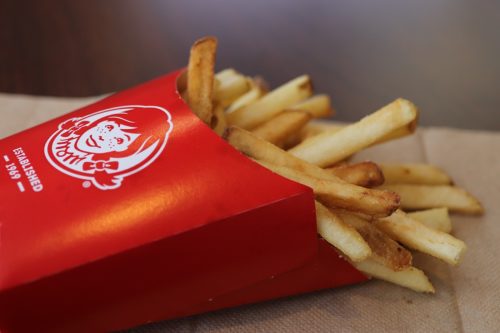Venture off of that restroom scale. That number won’t reveal to you how sound you really are, as indicated by a University of Alberta scientist.
Nourishment master Carla Prado has expounded broadly on the perils of low bulk over a wide scope of body types. As per her ongoing audit of almost 150 examinations distributed over a solitary year, patients with low bulk experience more complexities, longer emergency clinic stays and lower endurance rates.
“Muscle is very important for movement and balance, for posture, strength and power, but it’s also a reservoir of amino acids,” said Prado. “The more you lose, the greater the consequences.”
In another examination, Prado contends that nourishment mediations could improve malignancy treatment, making a high-protein, high-supplement diet a significant device in the battle against a perilous sickness.
What’s up with weight
Pundits have since quite a while ago proposed the weight file—a straightforward estimation of weight over stature—bypasses significant contrasts in body types. A stationary wrestling fan may have an ordinary BMI, while Dwayne “The Rock” Johnson would almost certainly qualify as stout.
Prado likes to look at oranges and pomelos, citrus natural products with altogether different strip to-organic product proportions.
“You can have people that have exactly the same body weight,” Prado said. “On the scale they look the same. But when you look at their body composition, the amount of muscle is very different.”
Several decades back, specialists started seeing a “obesity paradox” among patients with ceaseless ailments. Higher BMI patients regularly fared superior to low BMI patients. While specialists thought about why that could be, Prado accepts the appropriate response really lies underneath the surface. It’s the muscle, she contends, not the fat.
At the U of A’s Human Nutrition Research Unit, where Prado is the executive, she is as yet expanding on work she started 10 years back as a U of A Ph.D. understudy. Seeing bulk and malignant growth results, she experienced issues finding flimsy patients with low bulk. She concentrated on malignant growth patients with heftiness. That work prompted an earth shattering examination in The Lancet Oncology that connected results to bulk—a paper that has been refered to about multiple times since its 2008 distribution.
Prado, who turned into a U of An employee five years back, accepts body organization look into has monstrous ramifications for the manner in which constant illnesses are dealt with. Chemotherapy, for instance, is regularly controlled dependent on body weight, leaving patients with stoutness and low bulk at a higher danger of poisonous quality. In any case, she additionally thinks nourishment can possibly change care just by concentrating on keeping up and fabricating muscle.
Threats of muscle weakening
A genuine ailment resembles a fierce blaze, Prado stated, destroying a body’s muscle repository at a fast rate. That lost muscle has numerous significant jobs past versatility, including directing hormones, metabolic capacities and organ work.
In only three days in a medical clinic bed, an old patient can lose in excess of a kilogram of muscle.
Over a 10-day clinic remain, a solid grown-up can lose five percent of their all out bulk. Those numbers ascend to 18 percent in an emergency unit.
“You can lose it so fast, but rebuilding it takes months,” she said. “Can you imagine one kilo, trying to put that on in a week or so? It’s almost impossible.”
Decay makes it harder to battle disease. A 10 percent misfortune prompts hindered resistance and expanded danger of contamination. 20% methods shortcoming and eased back mending; 30 percent leaves a patient too feeble to even consider sitting. Lost 40 percent is regularly lethal.
Be that as it may, there are different interesting points. With more regrettable results, extra difficulties and longer medical clinic stays, overlooking bulk costs wellbeing frameworks more assets. Prado said patients end up with a more unfortunate personal satisfaction, incapable to play out the most fundamental assignments like opening a container of water or brushing their hair.
She is taking a gander at how dietary intercessions could be utilized to forestall or treat ailments by building muscle, by and by coming back to disease. While nourishment rules are frequently “one size fits all,” Prado thinks expanding protein and muscle-building supplements could profoundly improve results. Sustenance ought to be viewed as a treatment.
“We take nutrition for granted, but it’s truly important,” she said. “Just like we need oxygen to breathe, our muscles need protein and amino acids to grow.”
Nourishment a path forward
A wide scope of studies have recommended new measurements that preferable catch wellbeing over BMI: body organization, strolling speed, grasp quality or the capacity to do push-ups.
Notwithstanding how bulk is estimated, Prado thinks it should be another imperative sign. Specialists ought to ask patients whether they have issues escaping their vehicle, she said. Also, patients confronting a sickness ought to ask specialists how their body arrangement could influence treatment.
“Every other medical field has evolved into using sophisticated techniques, so why would dietitians rely on something Hippocrates could have done?” she said. “We have to evolve.”
Prado needs to remove the concentration from the restroom scale and keep looking further. Including muscle—or possibly holding it—could genuinely mean an ounce of avoidance is superior to a pound of fix.
Disclaimer: The views, suggestions, and opinions expressed here are the sole responsibility of the experts. No Chicago Headlines journalist was involved in the writing and production of this article.





